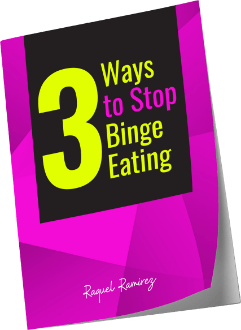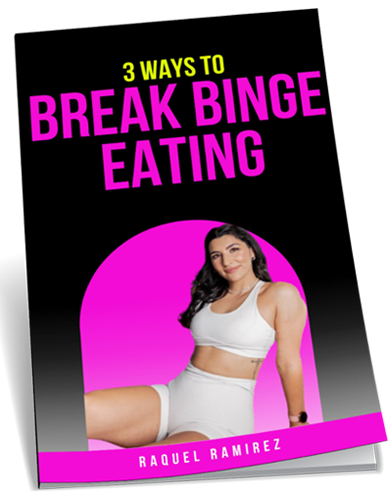Why Skipping Breakfast Might Be Fueling Your Binge Eating
How Morning Cortisol, Hunger Cues & the Restrict-Binge Eating Cycle Are All Connected
Do you ever find yourself saying:
“I’m just not hungry in the morning…”
…and then later that night you’re elbow-deep in snacks, wondering what happened?
You’re not alone—and your hormones might be trying to tell you something.
At Ladies That Lift we find many new clients struggle with binge eating.
Many women fall into a restrict-binge cycle without realizing that it often starts in the morning—with skipping breakfast.
The Truth About Morning Hunger (and Why It Matters)
Cortisol, your body’s main stress hormone, naturally spikes in the morning to help you wake up and feel alert. That’s normal and healthy.
But when you don’t eat in the morning—whether because you’re busy, not hungry, or trying to “save calories”—you stay in a heightened stress state for longer.
And here’s why that matters:
🍽️ Eating early sends a “safe and fed” signal to your body via the parasympathetic nervous system—aka your rest and digest mode.
⚡ Skipping food keeps you in stress mode, which makes cravings stronger and blood sugar more unstable later in the day.
😩 Over time, this contributes to the classic restrict–binge eating pattern—where you start the day under-fueled, and end it overeating, snacking, or even bingeing.
The Cortisol–Craving–Crash Connection
When you don’t eat in the morning, your cortisol stays elevated longer than it needs to. This can cause:
- Blood sugar crashes mid-morning or mid-afternoon
- Intense sugar or carb cravings later in the day
- Mood swings, irritability, or anxious energy
- A higher likelihood of binge eating in the evening
By simply eating within 60–90 minutes of waking, you can interrupt this pattern. You’re giving your body the fuel it needs before it starts to feel deprived.
Not Hungry in the Morning? That’s a Symptom, Not a Personality Trait
We hear it all the time:
“But I’m just not hungry when I wake up!”
And that’s valid—but it’s usually a sign that something’s off in your rhythm. Here are a few common causes:
- Coffee first thing – Caffeine suppresses appetite and spikes cortisol even more
- Late-night eating – Delays morning hunger
- Poor sleep or high nighttime stress – Disrupts cortisol balance and dulls appetite
- Under-eating or chronic dieting – Slows your metabolism and shuts off natural hunger cues
Want to Binge Less? Start with Breakfast
You don’t need a giant breakfast. But something—especially with protein and carbs—can help reset your hunger cues and reduce binge tendencies later.
Here’s how to get started:
- Start small – A couple boiled eggs and some berries, or a protein smoothie with some almonds
- Eat before caffeine – Try flipping your routine: food first, coffee second
- Keep it consistent – Your body will learn to expect (and ask for) fuel earlier, say helllllo to hunger cues!
The Bottom Line
If you’re stuck in the binge-restrict cycle,
If you’re tired of “being good” all day just to overeat at night,
If you want stable energy, fewer cravings, and better hormone balance…
Eat in the morning.
Fueling yourself early is not just about metabolism—it’s about calming your nervous system, honoring your hormones, and breaking the restrict–binge pattern for good.
Your body deserves nourishment, not punishment.
And the best time to start?
Tomorrow morning.
For more insights, please listen to an early episode of the new rebranded podcast The Unfiltered Health Podcast, episode 14 – Binge eating: how to heal your relationship with food (my 5, personal and experienced tips)
— Ladies That Lift Team






